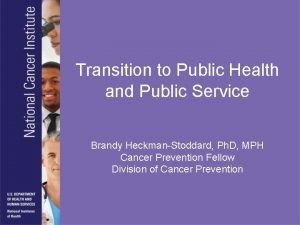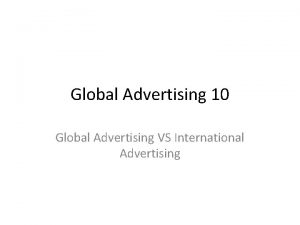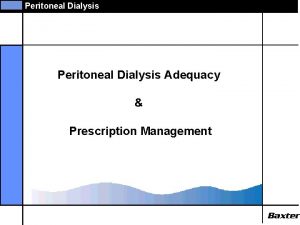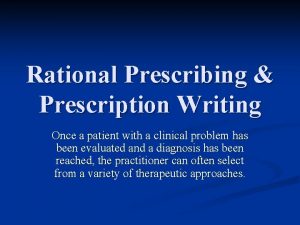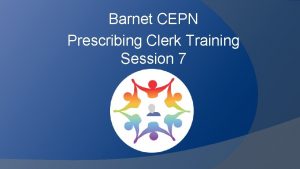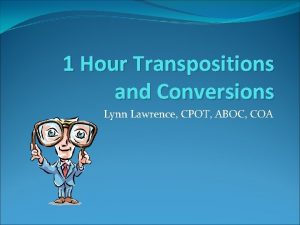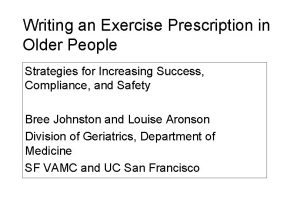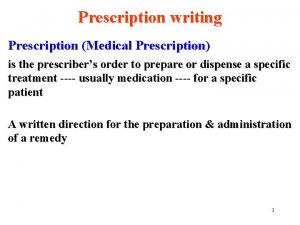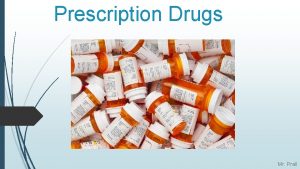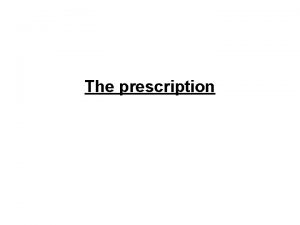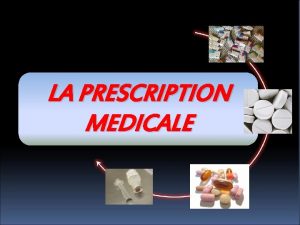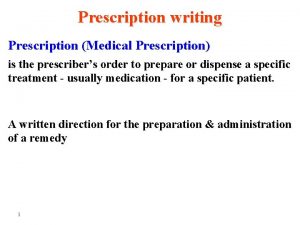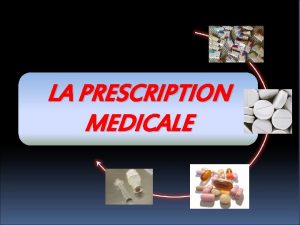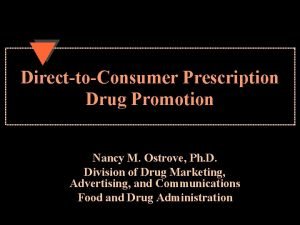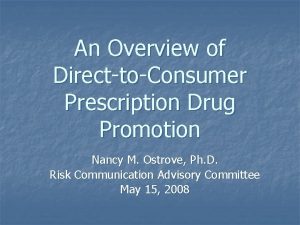DirecttoConsumer Advertising of Prescription Drugs Aaron Stoddard Ms














- Slides: 14

Direct-to-Consumer Advertising of Prescription Drugs: Aaron Stoddard Ms. Whitney College Composition II Period: 5 A


Requirements for Ads Per FDA (Food and Drugs Advertising) regulations issued in late 1960’s, ads: n Must not be false or misleading n Must present “fair balance” between benefits and risk information n Must disclose “material” facts in light of claims made about product

What Does this Mean? n Accurately communicate indication(s) including context for any claim n Limitations on indication(s) Relevant patient population n Concomitant therapies/treatments n Likelihood of benefit(s) Communicate most important risks in a manner reasonably comparable to benefits (presentation and language) Cannot omit important information n Ø In plain language Ads must communicate an accurate and balanced picture of the drug product

How DTC Evolved n Up to 1980’s: consumer communications through “learned intermediary” n 1980’s: saw 1 st DTC ads and fallout --1983 -1985: FDA voluntary moratorium --1985: lifted, regulations provide “sufficient safeguards to protect consumers” n 1990’s: print ads proliferated n mid 1990’s: broadcast ads enters mix

Does DTC advertising. . . n Increase demand for advertised drugs? n Cause patients to pressure doctors for advertised drugs? n Cause inappropriate prescribing? n Increase the price of drugs or the cost of health care? n Harm the relationship between patients and doctors? n Is DTC advertising appropriate at all?

Does DTC advertising increase demand for advertised drugs? n DTC not primary driver of visits to doctor n DTC plays a role in generating questions for doctor n Patients still use their doctors as #1 information source when looking for more information about a drug or treatment n Pharmacists, nurses also highly ranked as sources

Does DTC advertising cause patients to pressure doctors for advertised drugs? n Some patients do expect a prescription because of a DTC ad n Asking about prescription drugs constant across time n Brand-specific requests are likely to be accommodated n n n Patients who ask about a brand are more likely to be prescribed that brand than patients who ask in general General Practitioners are more likely to prescribe a requested brand than Specialists General Practitioners report feeling more pressured to prescribe

Does DTC advertising cause inappropriate prescribing? n Vast majority of patients who ask about a brand have the condition that drug treats n Among physicians who did not prescribe requested drug, most common reasons were: drug not right for patient n different drug more appropriate n

Does DTC advertising increase the price of drugs or the cost of healthcare? n Patients rarely discuss cost of drugs with doctor n Certain groups are more likely to discuss cost: Women n Patients in poor health n Patient taking one or more prescription drugs n Patients without prescription drug payment plan n


Does DTC advertising harm the relationship between patients and doctors? n Patients report their doctors generally respond positively to questions n Greater percentage of doctors say patient having seen a DTC ad had positive impact on interaction, as opposed to negative impact n General Practitioners report more negative beliefs about potential negative effects of DTC ads than Specialists n n Physicians are evenly divided in opinions about overall impact of DTC ads on patients and practice- 1/3 positive, 1/3 no effect, 1/3 negative General Practitioners report a more negative overall impact of DTC ads on patients and practice than Specialists

Is DTC advertising appropriate at all? n DTC ads increase awareness of possible treatments n DTC ads do not convey information about risks and benefits equally well Physicians believe patients understand benefits much better than risks n Physicians believe DTC ads confuse patients about relative risks and benefits of drugs n Patient attitudes about many aspects of DTC advertising have become less positive over time n

 Theodore stoddard
Theodore stoddard Martha stoddard holmes
Martha stoddard holmes Brandy heckman-stoddard
Brandy heckman-stoddard Aldo leopold and theodore roosevelt
Aldo leopold and theodore roosevelt Global advertising and international advertising
Global advertising and international advertising Pd prescription calculator
Pd prescription calculator Elements of prescription
Elements of prescription Prescription clerk training
Prescription clerk training Nvo eye prescription
Nvo eye prescription Medent emr tutorial
Medent emr tutorial Prescription
Prescription How to write an exercise prescription
How to write an exercise prescription Erroneous violative impossible prescription
Erroneous violative impossible prescription Ac iv medical abbreviation
Ac iv medical abbreviation Centralized unit dose drug distribution system
Centralized unit dose drug distribution system


